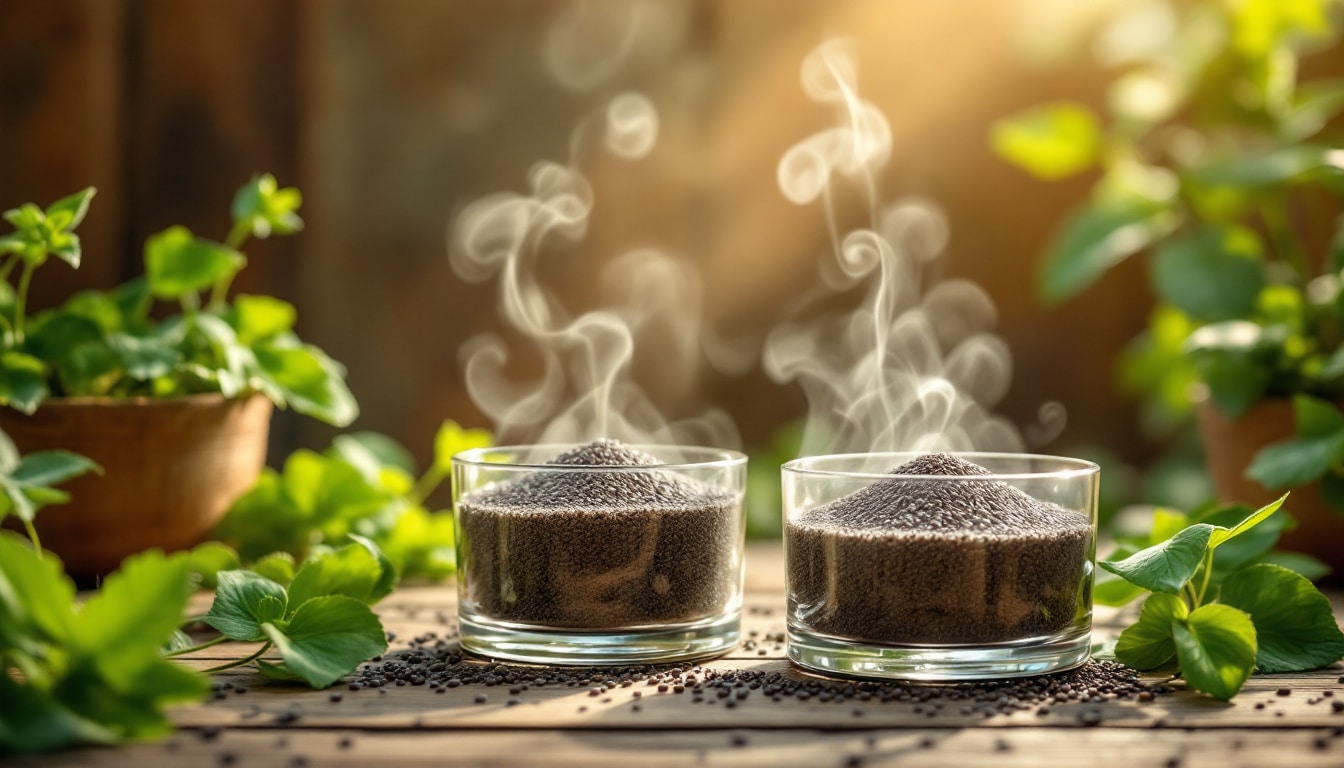Have you ever stumbled upon a tiny seed that holds the potential to transform your health? Enter chia seeds! These minuscule powerhouses have captured the attention of health enthusiasts around the globe, but they are far more than just a passing health trend. Originating from the ancient Aztec civilization, chia seeds have been cherished for centuries due to their remarkable nutritional profile. These little wonders are packed with fiber, protein, and a plethora of essential nutrients that contribute to overall well-being.
While many tout them as a superfood, the significance of chia seeds extends beyond merely enhancing your diet. Their ability to provide energy, support digestive health, and offer a balanced source of omega-3 fatty acids distinguishes them in the ever-evolving landscape of nutrition. As we delve into the myriad benefits of chia seeds, we will uncover how incorporating them into your diet can boost your health journey and perhaps even revolutionize the way you perceive nutrition. Prepare to embrace the tiny seed that has a grand impact on health and longevity!

Often described as a superfood, chia seeds have gained immense popularity in health and wellness circles. These tiny seeds, which originate from the Salvia Hispanica plant, are often celebrated for their dense nutritional profile. However, the story of chia seeds goes beyond just being a health trend. In this article, we will explore the nutritional benefits, unique preparation methods, and innovative ways to incorporate chia seeds into your diet.
Table of Contents
ToggleThe Nutritional Powerhouse: What Science Says About Chia Seeds
Chia seeds are incredibly rich in essential nutrients. A single ounce (about 28 grams) contains approximately 139 calories, less than 1 gram of sugar, and is packed with 11 grams of fiber, 4 grams of protein, and a wealth of omega-3 fatty acids. According to the USDA, one ounce of chia seeds provides more calcium than a glass of milk, underscoring their value in maintaining bone health.
Recent studies highlight the role of chia seeds in lowering cholesterol levels and reducing cardiovascular risk. A remarkable study published in the Journal of Nutritional Biochemistry revealed that participants who incorporated chia seeds into their diets had significant decreases in total cholesterol and low-density lipoprotein (LDL) cholesterol, often referred to as “bad” cholesterol.
Furthermore, chia seeds offer an impressive dose of antioxidants, which fight the damaging effects of free radicals in the body. These antioxidants not only contribute to overall health but may also play a role in skin health and aging. According to a report from the National Center for Biotechnology Information, the antioxidant capacity of chia seeds is particularly beneficial in combating oxidative stress.
Innovative Ways to Incorporate Chia Seeds in Your Daily Routine
Chia seeds are versatile and can be easily incorporated into various meals. Here are some practical strategies to add chia seeds into your diet:
1. Supercharge Your Smoothies: Add 1-2 tablespoons of chia seeds to your morning smoothie. The seeds will blend seamlessly while adding a nutritious boost of fiber and omega-3 fatty acids.
2. Chia Seed Pudding: Combine 1/4 cup of chia seeds with 1 cup of almond milk and let it sit overnight. Enjoy it in the morning topped with fruits and nuts for a delicious breakfast.
3. Baking with Chia Seeds: Chia seeds can be used in baking as a replacement for eggs. Mix 1 tablespoon of chia seeds with 2.5 tablespoons of water, let it sit for 10 minutes, and use it as a binder in your recipes. This is particularly beneficial for those following a vegan diet.
4. Infuse Your Water: For a refreshing drink, add chia seeds to your water or herbal tea. The seeds will swell up, creating a gel-like texture that adds a unique element to your hydration routine.
5. In Salads: Sprinkle chia seeds over your salads for a delicate crunch. They can also enhance the nutritional profile of your meal by adding fiber and protein.
To optimize the benefits, one can soak chia seeds before consumption. When soaked in water, chia seeds absorb liquid and form a gel-like consistency, making them easier to digest and enhance nutrient absorption.
Potential Drawbacks and Cautions When Consuming Chia Seeds
While the health benefits of chia seeds are well-documented, it is essential to consume them mindfully. For individuals who experience dysphagia or difficulty swallowing, whole chia seeds may pose a choking hazard. Therefore, it is advisable to start with small amounts, particularly if you are new to incorporating these seeds into your diet.
Moreover, the high fiber content in chia seeds requires a gradual introduction, allowing your digestive system to adjust. Experts recommend starting with one tablespoon per day and slowly increasing your intake as tolerated. Additionally, always ensure to stay hydrated while consuming chia seeds due to their tendency to absorb water.
Finally, keep in mind that while chia seeds provide numerous health benefits, they should complement a balanced diet rather than replace whole food sources. A diverse intake of fruits, vegetables, whole grains, and lean proteins is essential for overall well-being.
In conclusion, chia seeds are more than just a trendy health food. They are a highly nutritious addition to our diets, providing a range of health benefits and versatile usage options. With the right approach, these tiny seeds can contribute to a healthier lifestyle while fueling our bodies with the essential nutrients they need. Whether you’re looking to enhance your recipes or simply enjoy their benefits, chia seeds are worthy of a spot in your pantry.

FAQ about Chia Seeds: More than Just a Superfood
Q: What are chia seeds?
R: Chia seeds are tiny seeds from the plant Salvia Hispanica, native to Mexico, and are recognized for their nutritional benefits. They come in black and white varieties and have been consumed since the Aztec civilization.
Q: Why are chia seeds considered a superfood?
R: Chia seeds are deemed a superfood due to their high nutritional content, which includes fiber, protein, omega-3 fatty acids, vitamins, and minerals that promote overall health.
Q: How can chia seeds be incorporated into my diet?
R: You can add chia seeds to smoothies, yogurt, oatmeal, or even bake them into recipes. They can be consumed whole or soaked to create a gel-like substance for easier digestion.
Q: What health benefits do chia seeds offer?
R: Chia seeds provide numerous health benefits, including improved digestion, heart health, weight management, and disease prevention due to their rich content of fiber, protein, and antioxidants.
Q: How much chia seeds should I consume daily?
R: A typical serving size is about 1 ounce, or 2 tablespoons. This amount delivers an array of nutrients without overwhelming your diet.
Q: Are there any negatives to eating chia seeds?
R: While chia seeds are generally safe, individuals with dysphagia (difficulty swallowing) should exercise caution. It’s advised to introduce them gradually into your diet to allow your body to adjust to the high-fiber content.
Q: Can chia seeds help with weight loss?
R: Yes, chia seeds are high in fiber and protein, which can help you feel full longer and curb cravings, thus aiding in weight management.
Q: How do chia seeds compare to other seeds like flaxseeds?
R: While both chia seeds and flaxseeds are nutritious, chia seeds can be consumed whole, do not require grinding, and provide a wider range of health benefits, including a higher fiber content.





